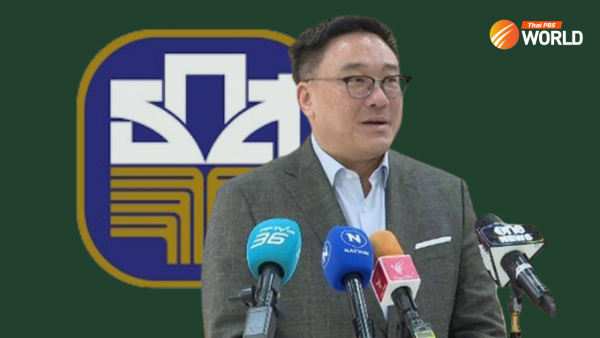Nobel Laureate urges youth to embrace entrepreneurship and technology for social good

Nobel Laureate Professor Muhammad Yunus, the iconic advocate for social entrepreneurship and micro finance, was recently in Bangkok to inaugurate the Yunus Centre in Thailand. With his profound influence on global social business and technology, Professor Yunus continues to inspire change-makers worldwide. In this exclusive interview, Nattha Komolvadhin delves into Yunus’s perspectives on technology, the younger generation and his unwavering commitment to social entrepreneurship.
Over the years, Professor Muhammad Yunus’s ideas have evolved from microfinance in Bangladesh to championing social business and entrepreneurship. Today, his passion extends to addressing environmental concerns and advocating for a zero-waste world. His overarching goal remains to create a better world through the collective actions of individuals.
He inaugurated the latest Yunus Centre at The National Institute of Development Administration (NIDA) in Thailand, the fourth of its kind in the country. Globally, there are now 106 Yunus Centres affiliated with universities in 40 countries.
Professor Yunus is dedicated to inspiring young people to embrace innovative approaches to business, emphasising that profit should not be the sole aim. Instead, businesses should focus on solving human problems.
“We are facing massive global challenges, to the extent that our very existence is threatened. We must chart a new course for our survival on this planet,” he asserts.
Yunus is acutely aware of the environmental crisis, particularly the alarming rate at which waste is accumulating. He cites Bangkok as an example, where vast quantities of waste are generated daily, much of which ends up polluting the oceans and water systems. Plastic waste, fashion waste, domestic waste – these are all multiplying at an alarming rate and, if unchecked, our planet will be engulfed by waste.
“This cannot be the future we desire. Each individual must become part of the zero-waste generation to prevent our own demise,” he passionately advocates.

From Microcredit to Social Business
Professor Yunus laid the foundation for the Grameen Bank, a bank for the poor, in 1976.
He says that “In the beginning, when I ventured into microfinance, my focus was on poverty, particularly women’s empowerment. We were enthused by the results, but then I questioned what caused this poverty.”
Hailing from the village of Chittagong in Bangladesh, Yunus graduated in Economics from Dhaka University. Witnessing the 1974 famine triggered his involvement in poverty alleviation. His endeavors always revolved around addressing poverty, initially through microcredit via Grameen Bank and eventually through social entrepreneurship programs.
Yunus identifies the root cause of poverty as the prevailing economic framework, asserting that, unless this system changes, poverty will persist.
He describes a vicious cycle, where wealth continually flows upward, leaving those at the bottom with minimal access to opportunities. This process leads to environmental degradation, massive unemployment and urgent issues that demand attention.
His solutions, developed through continuous reflection and action to combat poverty, emphasise the transformation of individuals into entrepreneurs who create their own livelihoods, rather than relying on the current education system.
“Human beings are natural entrepreneurs. To nurture this spirit, we must overhaul the entire financial and banking system. We must return to the principles of micro finance and establish a banking system that focuses on social impact, not personal gain. That’s the essence of social business,” Yunus emphasises.
The Power of Imagination
Yunus extols the power of imagination and believes that every endeavor begins with this fundamental creative force. He asserts that “Imagination should be an integral part of education, inspiring students to envision the world they wish to build and their role within it.”
Recognising that human existence is but a fleeting moment in the grand scheme of the universe, Yunus challenges everyone to contemplate their life’s purpose and how they can contribute to the planet during their limited time.
“If you can imagine it, it can happen; if not, it never will. Imagination is a potent force. Keep envisioning and manifest what you desire. Define your life’s purpose and make it a reality,” he says.
Empowering the Younger Generation with Technology
Despite his extensive life experience and impactful work, Yunus admits to feeling envious of today’s youth, who possess a formidable asset: technology.
He asserts that young people represent the most powerful generation in human history, due to their unprecedented access to technology.
When young people express doubt upon hearing this, he explains that “You are fundamentally different from your grandparents and parents, because you wield the most advanced technology ever known to humankind.”
He cautions, however, that merely swiping through smartphones and engaging on social media doesn’t harness the true potential of technology.
What he implores is for young individuals to recognise the power technology affords them and to use it to contemplate their aspirations and contributions.
“Life’s purpose transcends mere employment. It encompasses a grander vision,” he claims.
Professor Yunus motivates young people to contemplate how they can harness technology for the greater good. He emphasises that failing to do so would be a squandered opportunity, as technology has the potential to shape a brighter future for all.
Dealing with Criticism
Recently, more than 100 Nobel laureates signed an open letter to Bangladesh’s Prime Minister Sheikh Hasina, urging her to stop her government’s “continuous judicial harassment” of Peace Prize winner Muhammad Yunus.
The open letter says that lawsuits filed against Yunus have no merit or legal basis and that he was facing a miscarriage of justice.
He reflects on his thoughts in dealing with negative comments.
“I would say you should not be distracted by the criticism. You may use it for your own benefit, to improve your ‘thing’. People will always find something suspicious, some misinterpretation and so on. This is part of life. You have to move as long as you believe that what you are doing is right. You keep on. Don’t stop, don’t slow down,” Professor Yunus responded firmly.
In a world grappling with complex challenges, Professor Yunus’s unwavering dedication to social entrepreneurship, technology-driven solutions and his resolute response to criticism continue to serve as a beacon of inspiration for generations to come.
Nattha Komolvadhin, Thai PBS World
Professor Yunus Recognises Technology’s Empowering Role for Youth






